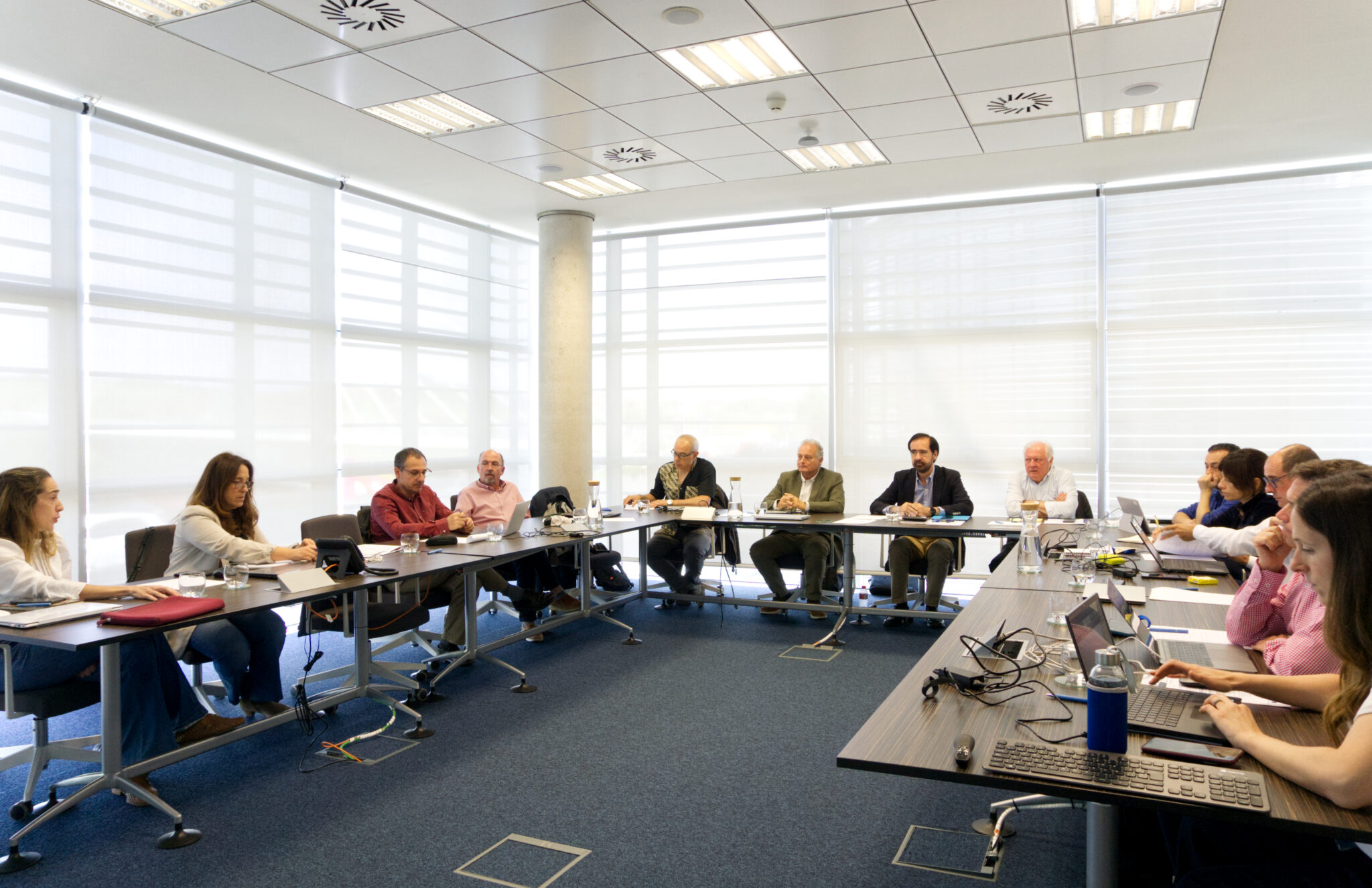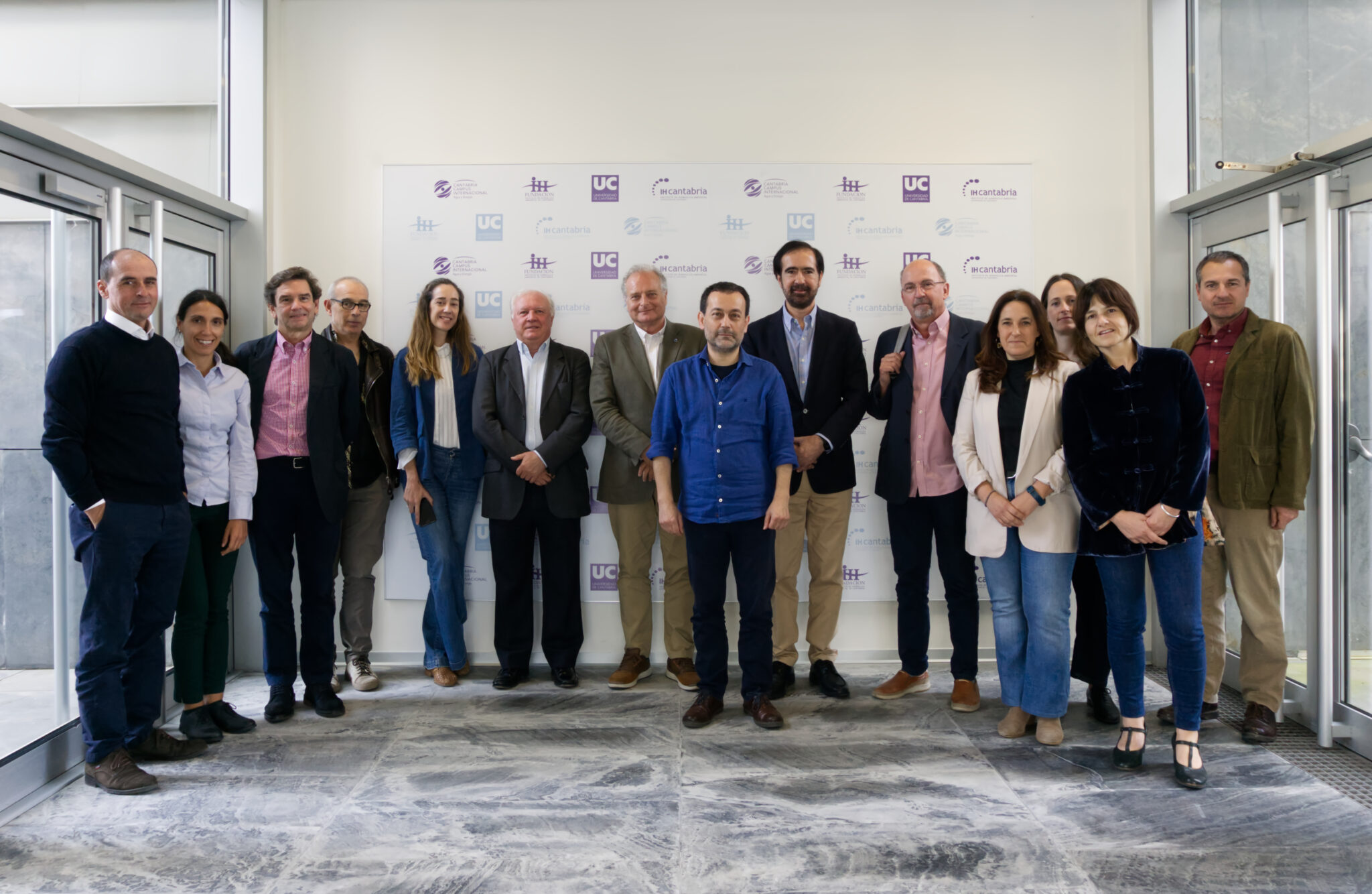NEWS
IHCantabria hosted a scientific-technical coordination meeting of the Complementary Plan for R+D+i in Marine Sciences, ‘ThinkInAzul’.

This meeting brought together in Santander all the scientific-technical coordinators of the seven autonomous communities that make up this Complementary Plan, with the aim of identifying synergies and collaborations between the various projects and entities participating in ThinkInAzul.
During the morning of May 8, a scientific-technical coordination meeting of the Complementary Plan for R+D+i in Marine Sciences, ThinkInAzul, was held at the headquarters of the Institute of Environmental Hydraulics of the University of Cantabria(IHCantabria).
In a sustainable and cooperative manner, this Supplementary Plan addresses new challenges in marine research, aquaculture, new technologies, the blue economy and impacts on the marine environment. For its execution, it is financed by the Ministry of Science and Innovation, with funds from the Spanish Recovery, Transformation and Resilience Plan, through NextGenerationEU funds, in addition to contributions from the autonomous communities.
The focus of the meeting was to identify synergies and collaborations among the various projects and entities that make up this Complementary Plan, in order to strengthen their collaboration and optimize resources. The event was attended by 14 people, including all the scientific-technical coordinators of the seven participating Autonomous Communities (Andalusia, Balearic Islands, Canary Islands, Cantabria, Community of Valencia, Galicia and Region of Murcia).
The words of welcome and introduction to the meeting were given by Fernando de la Gándara, director of the Spanish Oceanographic Institute (IEO) in the Region of Murcia, and Raúl Medina, general director of IHCantabria and vice-president of FIHAC. Subsequently, the scientific-technical coordinators reported on the progress made in their respective Autonomous Communities with regard to the implementation of this Complementary Plan in its three lines of action: 1) observation and monitoring of the marine and coastal environment; 2) sustainable, intelligent and precision aquaculture, and 3) blue economy.
During the discussion sessions, topics such as the need to establish scientific-technical coordination at various levels, by line of action (top-down) and from researcher to researcher (bottom-up), the appointment of a communication coordinator in each Autonomous Region (to disseminate information and the results of the Program, maintaining a common corporate image) and the importance of favoring cooperation with companies to promote actions related to the blue economy: blue tourism, marine energy, maritime transport and fishing, among others, were addressed.
The meeting was closed by Fernando de la Gándara and Luis Valdés Santurio, who is director of the Oceanographic Center of Santander (IEO-CSIC) and scientific coordinator of the program in Cantabria.
This meeting was attended in person by: Eva Mena (Andalusia), Gotzon Basterrechea (Balearic Islands), Eduardo Portillo (Canary Islands), Marianna Venuleo (Canary Islands), Felipe Aguado (Cantabria), Raquel Somavilla (Cantabria), Luis Valdés (Cantabria), Francisco Royano (Cantabria), Lorena López (Cantabria), Raúl Medina (Cantabria), Fran Saborido (Galicia), Marta Casas (Galicia), Fernando de la Gándara (Murcia) and Jaume Pérez (C. Valenciana). Also participating telematically were: Antonio Valverde (Andalusia), Virginia Martín (Canary Islands), Jesús E. Argente (Murcia), Eduardo Almansa, Silvana Neves, Javier Roo, José J. Pascual.
The implementation of the Complementary Marine Science Plan aims to contribute to the promotion of science as a basis for decision-making in the field of public policies. Therefore, this is a Plan that is aligned with the Sustainable Development Goals and with the 2030 Agenda of the United Nations; in addition, it coincides with the approach of the Decade of the Oceans, whose motto is: “The science we need for the ocean we want”.




